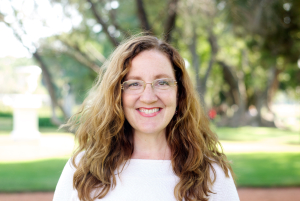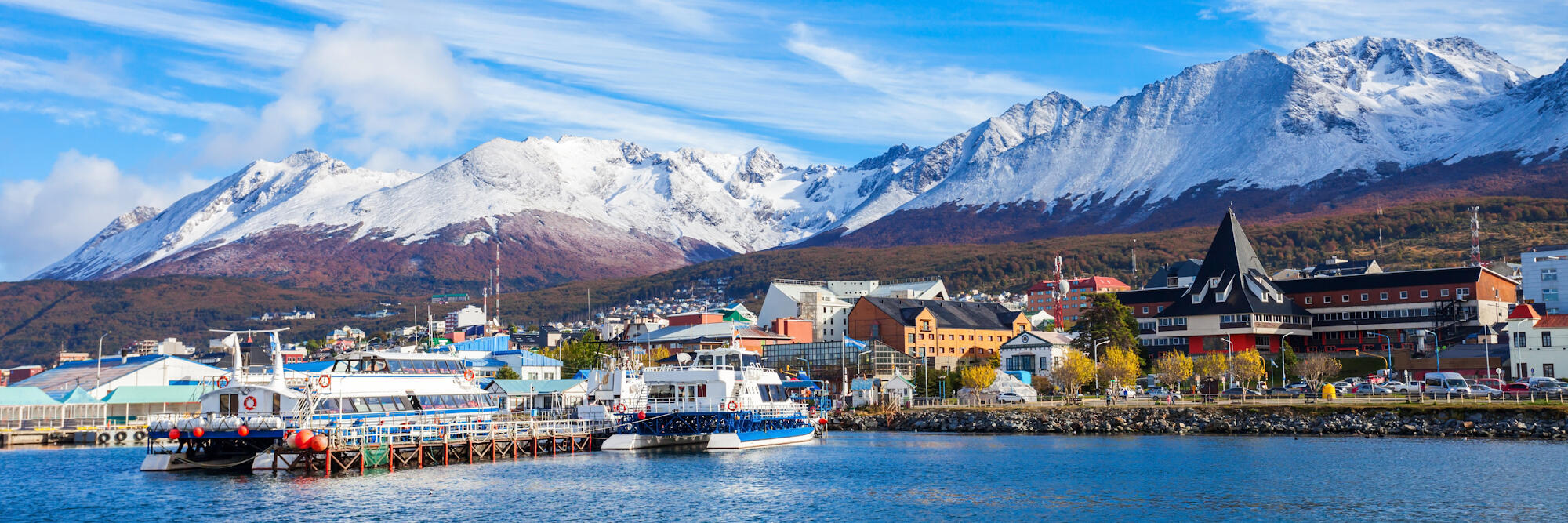Maggie is an educational consultant who has been living and working in Buenos Aires for many years. Her speciality is school selection and placement for international families coming to live in Buenos Aires, as well as College Admissions Consulting for international students looking to study in the US or Europe. She has lived in many countries and thoroughly enjoys a little culture shock in her life. She is married to an Argentinian and has three beautiful adult children. Follow Maggie’s life in Buenos Aires on Twitter.
Read more about expat life in Argentina in our Expat Arrivals Argentina country guide.
About Maggie
Q: Where are you originally from?
A: Milwaukee, WI, USA
Q: Where are you currently living?
A: In the northern suburbs (zona norte) of Buenos Aires, Argentina
Q: When did you move here?
A: 2012
Q: Is this your first expat experience?
A: Yes.
Q: Did you move here alone or with a spouse/family?
A: I came here with my Argentine husband and three teenage kids.
Q: Why did you move; what do you do?
A: Both my husband and I were in dead-end jobs and couldn’t seem to find our next opportunity. We tried over and over again to advance our careers, make more money, and have a better quality of life, but moving to Argentina was never really one of the considerations. But surprisingly, out of the blue, my husband received a good job offer to return to Buenos Aires to work. As we started to consider the possibility, he received four more offers. It seems that the universe was telling us to move. So we did!
Living in Buenos Aires
Q: What do you enjoy most about Buenos Aires? How would you rate the quality of life compared to the US?
A: Life here is much slower paced than our life in the suburbs of New York City was. We have a lot more family time, more downtime, and a much richer social life. There’s always something fun to do! We were never as social in NYC as we are here. For the 20 years we lived there, I always felt like we didn’t have enough time to do anything except work.
Q: Any negative experiences? What do you miss most about home?
A: I miss the cultural richness and diversity of NYC. Here, most people are of white, European heritage. There isn’t a lot of focus on “celebrating difference” in ethnicity, race or sexual preference. There is a lot of sameness.
Q: What’s the cost of living compared to home? Is there anything particularly expensive or particularly cheap in Buenos Aires?
A: We spent months comparing our cost of living from NYC to Buenos Aires before we moved here. We had multiple spreadsheets with all kinds of facts provided by family and friends who lived here. But we failed to consider one major aspect… inflation. It is a phenomenon like no other. It can make economic planning almost impossible. My recommendation to anyone coming here is to make sure you will have an income that grows as fast as inflation does (some industries do, others don’t. Luckily, ours does!). Otherwise, you will drown financially in a very short time.
Q:How would you rate the healthcare in Buenos Aires? Have you had any particularly good/bad experiences regarding doctors and hospitals?
A: I have had excellent medical care in this country. We have OSDE private insurance, and even though we do not pay an extraordinary amount, I have been able to have three surgeries in five years, yet I didn’t pay one cent of out-of-pocket expenses. I go to almost any doctor I want to, and it’s all covered. It is one tremendous advantage to living here as compared to the US!
Q: What are the biggest safety issues facing expats living in Buenos Aires or Argentina? Are there any areas expats should avoid?
A: There are more safety concerns here than in most US cities. You need to be aware of your surroundings at all times and be aware of things like your cell phone and wallet. I would also be discreet with things like fancy clothing, furs or jewellery. My suggestion is to have a similar attitude to what you would have while walking around New York City. Keep in mind that the crime in this city comes from the poverty many people face, not from drug addiction or mental illness. Therefore, it’s not really dangerous to your safety, it’s just a little dangerous for your wallet!
Q: Any areas or suburbs you’d recommend for expats to live in?
A: It’s very common for expat families to live in Martinez, Acasuso and San Isidro. I live in a neighbouring community called San Fernando, and that’s nice too. There are many gated communities in the northern suburbs that are nice, provide more safety and security, and appeal to expats.
Meeting people and making friends
Q: How tolerant are the locals of foreigners? Is there obvious discrimination against any particular group? Have you ever experienced discrimination in Buenos Aires?
A: It’s difficult to meet and develop close friendships with Argentines because most of them already have a million friends and lots of family. When people are born and raised in this city, they never leave, and neither do their friends and family. As a result, they have friends from school, from their neighbourhood, from their sports club, from college, from work, and a very tightly-knit family life as well. As a result, they don’t really need more international friends like us. Don’t be insulted if you have trouble finding Argentine friends. It’s not your fault. They are just busy!
Q: Have you made friends with locals, or do you mix mainly with other expats? What advice would you give to new expats looking to make friends with the locals?
A: Since my husband is Argentine, we have a tremendous amount of friends and family that we see quite often. But my personal friends are all expats. There’s a very active and social expat community here, both downtown and in the suburbs, which has provided me with an entirely separate world of friends, activities and social life. I love it!
Working in Buenos Aires
Q: How does the work culture differ from home? Do you have any tips for expats doing business in Buenos Aires or Argentina? Have you had any particularly difficult experiences adapting to local business culture?
A: I have worked as both an independent consultant here and part of the administration of a primary/secondary school. The work climate is very different from that in the US. At least in my experience, employees only work from 9am to 5pm and don’t even check emails after that time, much less work from home. As clothing is very expensive here, most people wear very casual clothing like sweaters and khaki pants to work and repeat outfits often. Very few women wear makeup or have their hair done. It’s a very casual work atmosphere. The nicest thing about large companies or schools is that they provide a free hot lunch as part of the benefits package.
Family and children
Q: What are the schools like? Any particular suggestions?
A: There are many schools to choose from, and the majority of them are bilingual and bicultural. Although their teaching techniques tend to be more traditional, their globalism and multiculturalism are far better than in the US. My suggestion would be to thoroughly investigate all the school options because there are many. You don’t need to go only to the international school in order to find English-speaking friends for your kids. There are many options all over the city. There are many websites and consultant services that could help you with this, including my own!
Final thoughts
Q: Is there any advice you would like to offer new expat arrivals to Argentina or Buenos Aires?
A: I have two suggestions.
First of all, understand that Argentines are absolutely crazy, rude drivers. They will cut you off, speed unnecessarily, drive with broken down and unsafe cars, and honk their horn at you even when you are doing nothing wrong. There’s nothing you can do about it, except to be a safe, defensive driver and to be aware of your surroundings. I don’t know how they got to be so crazy, but it’s probably one of the first things you will notice about Argentine culture. Accept it and move on.
Second of all, Argentines are incredibly honest. What an American might think in their head, an Argentine will say out loud. Don’t be surprised if they call you gordito and comment on how you’ve gotten bigger lately, or if you failed an exam, they will all discuss it at the dinner table and analyze why you failed. My favourite one is when they ask you publicly what your salary is! They are not trying to be rude; it’s just the honest and open way of speaking. It’s refreshing actually!
►Interviewed February 2020



